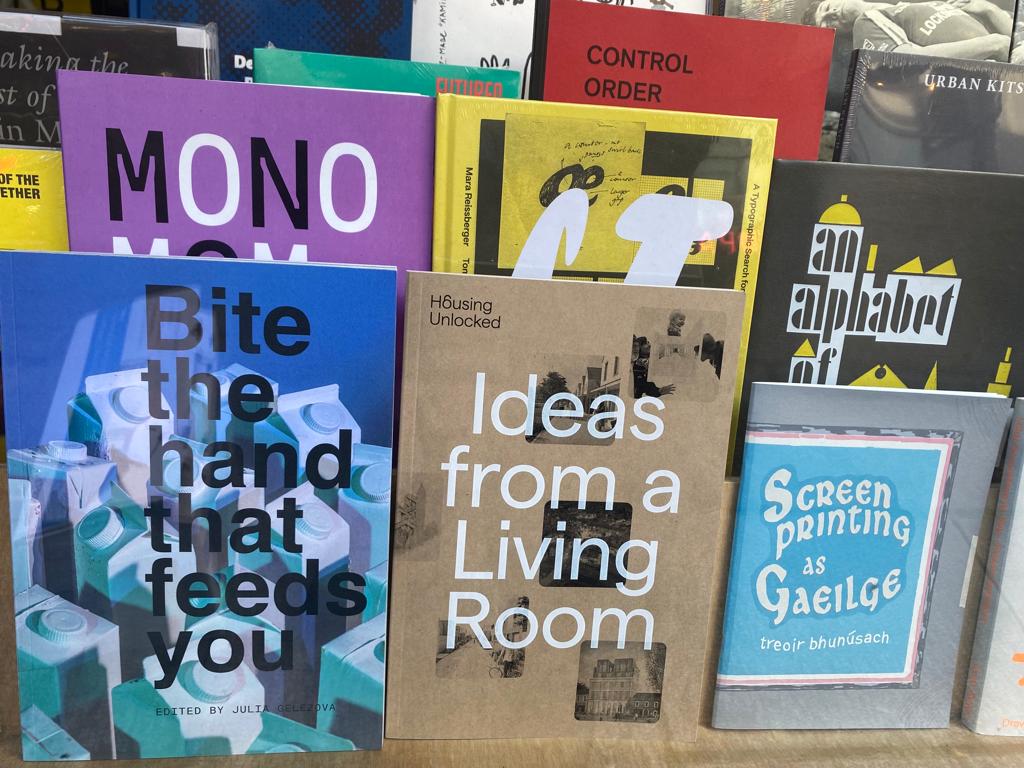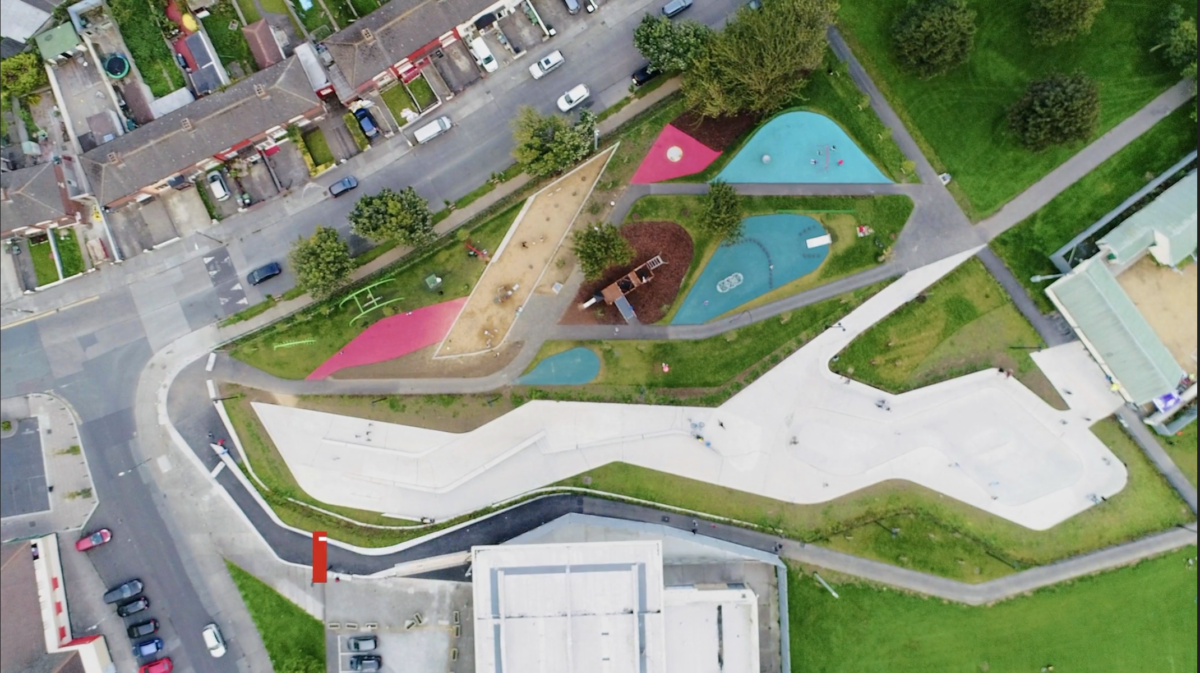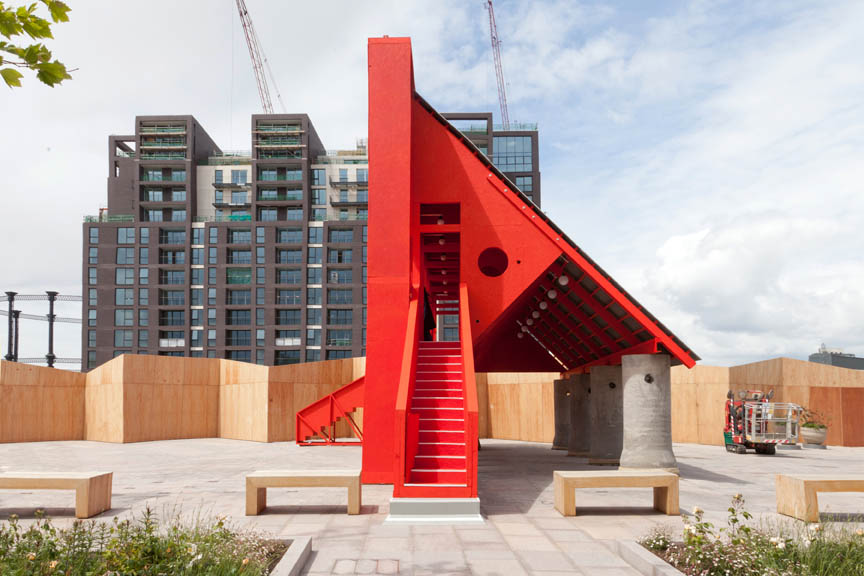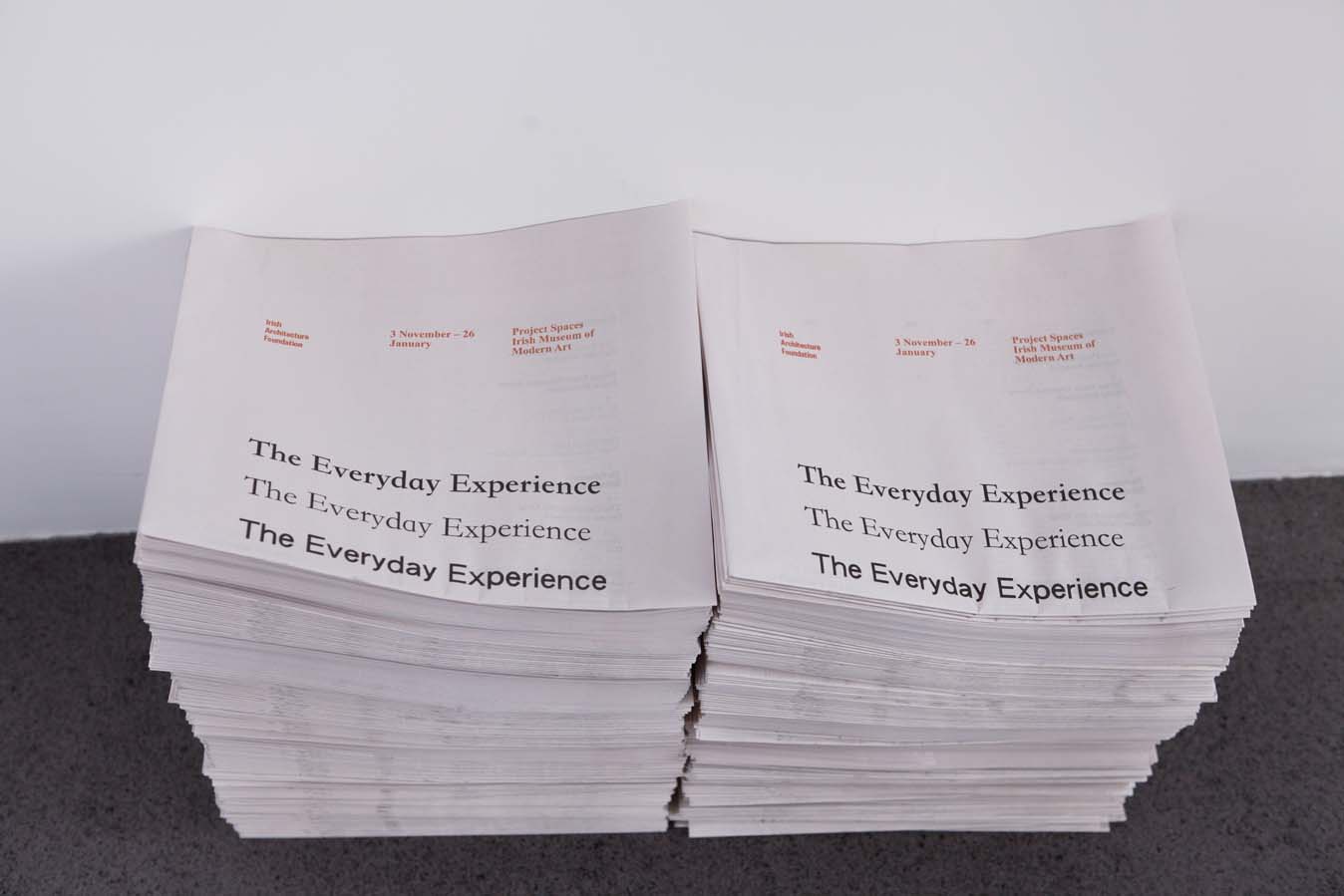This is the unedited introduction text written from the subjective perspective of being the director and instigator of Housing Unlocked for a proposed publication. An Edited Version was published in the book Ideas from a Living Room by the IAF in October 2023.
Insights

Ideas from a Living Room for sale in The Library Project, Temple Bar.
Housing Unlocked was an initiative that sought to unlock the housing potential of our villages, towns and cities. It was a partnership between the Irish Architecture Foundation (IAF) and The Housing Agency (THA) between 2022 and 2023.
The partnership was collaborative, synergistic, and was driven by the need to apply innovation and expertise not just to the final product but to the integrated system that delivers our homes. We created a website, an ideas competition, an exhibition, and a public engagement programme. Post-exhibition, we endeavoured to capitalise on the impact of the initiative by continuing the conversations with policy makers, built environment practitioners and the public. This book and its dissemination is one part of that continuation. Post Housing Unlocked, the pursuit of knowledge, innovation and resolution persists, the end goal is not more books or more exhibitions but more housing for all.
At the core of the Irish Architecture Foundation’s purpose is to communicate that architecture is a discipline that can open possibilities for living our daily lives. It can reinvent, transform, reuse and push forward technology and innovation within the limitations of codes, standards and budget.
The intention of Housing Unlocked was to illuminate this and to build a shared architectural culture with people who use, design, develop, evaluate, and politicise the built environment and to advance thinking that challenges mainstream ideas about history, politics, economics, and culture.
Fortuitously, when I was drafting the brief for the Housing Unlocked ideas competition, at the same time the IAF was hosting a public conversation between four industry heavyweights, Anne Lacaton and Jean Philippe Vassal from Lacaton Vassal based in Paris, and Shelley McNamara and Yvonne Farrell from Grafton Architects based in Dublin. Both practices in 2021 and 2020 respectively received the profession’s highest honour,The Pritzker Prize, which awards architects whose built work demonstrates a combination of ‘talent, vision and commitment’. Given that Lacaton Vassal considered housing to be one of their most significant achievements, the conversation quickly embraced this topic. Jean Philippe Vassal stressed how important it is for architects to be sensitive to places and communities, working with the users to create an architecture that enhances the quality of life. He proclaimed that housing is the most beautiful challenge for architecture and for the architect. His alacrity was infectious and left an impression on the character of the Housing Unlocked initiative for me.
Being cognisant of the contested nature of approaches to this topic in Ireland, the intention of Housing Unlocked was to supplement the narrative prevailing in the public and political fora. The housing crisis in Ireland is a systemic issue where everyone has a part to play. Housing Unlocked offered a different perspective, and created an equitable space where architects, elected officials, professionals, academics, and inhabitants met and learned from each other to think about the future of our society and how it is shaped.
It was clear to me that architecture was not the problem but it should be part of the solution. We needed Housing Unlocked to inject fresh thinking into the conversation, to raise awareness about design, to demonstrate methods of construction and forms of social innovation that have the potential to deliver homes and thriving communities.
We received fifty plus innovative ideas to improve the quality of housing, change mind-sets, inspire the public and incentivise all housing commissioners (public and private). Eight were shortlisted for exhibition varying in scale from 1:1 down to 1:500. The diverse collection of installations and provocations, illustrated how the house has been, and continues to be, not only a reflection on the home as an object of design but also a critical agent in the discourse of sustainability, community cohesion, architectural invention, new material and formal research.
We used the exhibition as a mechanism to carve space for a positive, inspirational and solution based perspective, to create an opportunity for people to come together and have a conversation about their needs and desires. The exhibition was one part of the experience; the second was the engagement programme. We set up a space in the gallery called The Living Room which housed a series of sixty plus open and collaborative conversations about housing.
The location, the former Science Gallery on Pearse Street,Trinity College in Dublin, helped us maximise on the ability to attract twenty five thousand engagements from a diverse (in terms of profession and age demographics) audience over four months.
The occupation at the former Science Gallery produced a miscellany of approaches, discussions, and diverse evocations, each independent but connected to reveal the complex relationship between architecture and human experience. The objective was also to shift or influence a new direction, or a new manifesto for practice or partnership between the public, policy and architecture.
Housing Unlocked was not merely an exhibition but rather an exercise in changing narratives for an open and generous discussion on the future of the built environment and how it should serve people. Housing Unlocked was charged with a sense of urgency, combined with optimism and innovation, which was reinforced by a confluence of ideas from the architect teams who came together to contribute to the challenge. The impact of Housing Unlocked remains to be seen, however I have no doubt that the creative energy expended by the architects and their expanded teams, the encounters with the public and community groups, the intensive discussions with policy makers will strike a chord for progress. We are human after all.
Nathalie Weadick, May 2023


